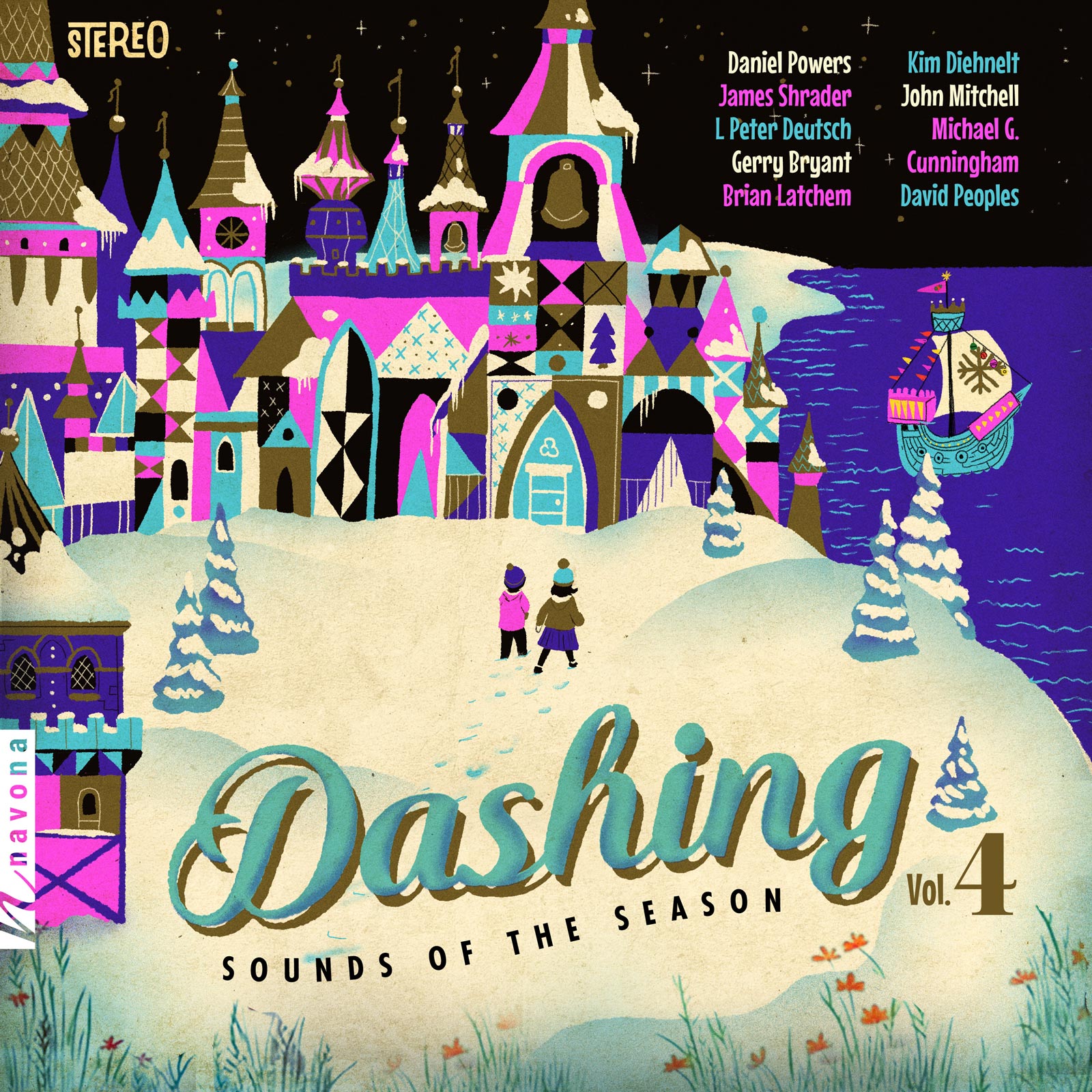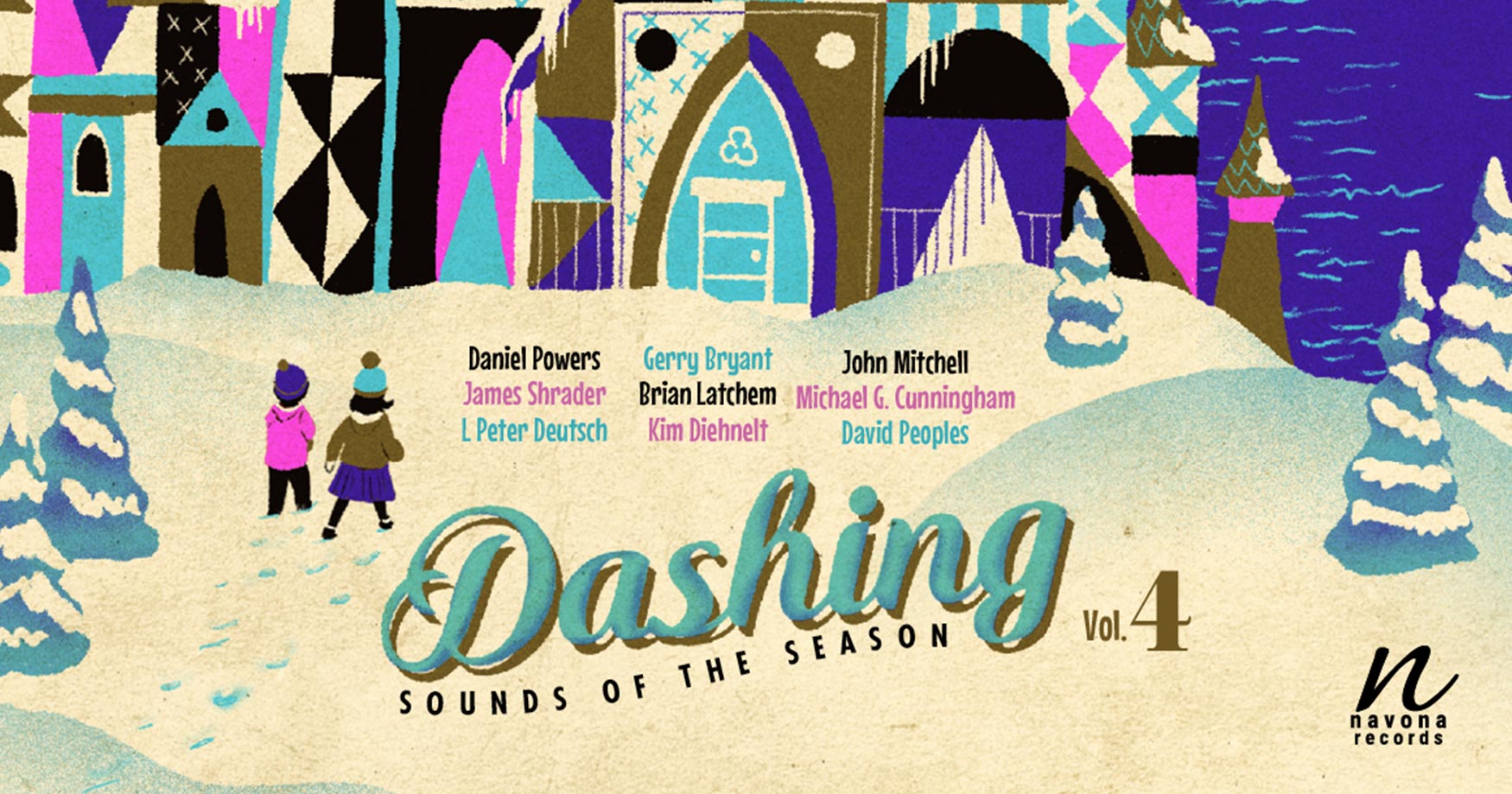
Light the fireplace, don your coziest sweater, and let the festive sounds of DASHING VOL. 4 from Navona Records whisk you away on a joyful journey through holiday music both new and familiar. Featuring a fresh line-up of contemporary composers, this edition of the series fuses the magic and warmth of holiday tones with the modern flair of today’s classical music, making for a neatly-packaged gift that’s sure to spark the spirit of the season.
PARMA Senior Content Writer Shane Jozitis recently connected with the composers of DASHING VOL. 4 to learn about the inspirations, processes, and realizations behind their works. Read on for an exclusive deep dive into the creative minds of Brian Latchem (BL), Daniel Powers (DP), Gerry Bryant (GB), and James Shrader (JS).
What is your favorite piece of holiday music? Are there any qualities of that piece that may have influenced your work on DASHING VOL 4?
BL: Ahmal and the Night Visitors. I first watched it on television, probably in 1959 when the BBC broadcast a live production on Christmas Eve. It made a huge impact on me and I have never forgotten. The Dorian Singers, the local choir here in Felixstowe, which I conduct, sang some of the choruses from it last Christmas in the concert where they performed the first performance of The Gorseland Carol.
GB: My favorite piece of holiday music is The Christmas Song, not only because of the nonpareil richness of the music and the poetic charm of the lyrics, but also because it holds a special place in my musical experiences. I had a weekly Sunday brunch solo piano gig at an L.A. restaurant where I would play an array of music, from classical to jazz to pop. During the holiday season, I would exclusively play my reimagined versions of holiday classics. One Sunday, after playing The Christmas Song, a lady came up to me and said that she had heard that song thousands of times in her household growing up and she was really tired of hearing it, but she really enjoyed my arrangement, which was the most beautiful version she had ever heard. She added that she was sure her late father would have loved it as well. I thanked her and she left. I didn’t think anything more about it until I found out later that the lady was the daughter of jazz legend, singer and composer Mel Tormé, who composed the song, which the great Nat King Cole recorded and made famous! You can’t beat that!
DP: This is not an easy one to answer; there are a lot of Christmas pieces I love, and I don’t like picking favorites. But if I may instead pick a piece that may have had some influence on my overture, I might choose Gustav Holst’s Christmas Day for chorus and orchestra. You don’t hear it very often, which is a shame; it’s a charming and lively work. It’s rather different in structure from mine. Holst takes the approach of writing a medley of several differing carols, whereas my overture is more of a classical sonata form based on only one traditional melody contrasted with original material. But I think Holst’s piece may have influenced me by its infectious spirit and joyful climax.
How do you approach storytelling through your holiday compositions, and what elements (instrumental or otherwise) are essential to your music?
BL: With all my choral music it’s the words that come first. In particular with The Gorseland Carol, the words were written by Derek Taylor, a friend who initially read them out to me over the telephone. I immediately sat at the piano and played the opening accompaniment inspired by the words I had just heard. I knew straight away the feeling I wanted to create from hearing those words. The following day Derek came over and I completed the carol in about 45 minutes. This original version was for a solo (boy treble) with piano accompaniment.
JS: Well, for me story telling is usually quite easy because I’m working with a text. However, there are a few elements that allow the music to clarify and enhance the stories of these two pieces. In particular, for Watchman Tell Us of the Night, I use the double bass to simulate the movement of a camel caravan as the travelers make their way across the desert. While there is no text being performed, hopefully the antiphonal treatment of the tune and the arabic obligato of the clarinet and flute will evoke a unique atmosphere. For I Saw Three Ships Come Sailing In, since this is a familiar carol, I had the idea of incorporating bits and pieces of other familiar carols woven into the texture of the accompaniment. Therefore, a careful listener will discover snatches of Away in a Manger, O Come All Ye Faithful, The First Nowell, Joy to the World, and maybe even others! Of possible interest is the fact that, in the original choral piece for childrens’ voices, some of the instrumental parts were written to be performed by children.
DASHING VOL 4 features works in a wide variety of orchestrations. Where does your piece fall in the mix, and what led you to choose this avenue to bring your piece to life?
GB: Unlike the other exceptional, original orchestrated works on the album, my tracks are all solo piano arrangements of holiday classics. Whilst I have many other reworked versions of holiday classics in my recorded music catalog, I chose these three in particular because together they pose very different ways of expressing myriad thoughts and feelings about the holidays.
DP: My overture began as a reworking of an arrangement for children’s chorus and orchestra written almost 20 years previously. It was performed once, but I thought it wasn’t successful; the orchestration was just too heavy for the choir, so I withdrew it. At some point I began thinking that it might be possible to re-imagine it as a purely orchestral piece. When I did so, I kept most of the original, leaving out the voices, and expanded the form with some new material and a completely new ending in the process, more than doubling its length.
What emotions do you want your music to evoke during the holiday season? Joy, nostalgia, reflection, or something else entirely?
JS: I feel like these two minimalistic chamber pieces provide some interesting listening opportunities surrounding the Nativity holidays. Watchman Tell Us Of The Night may not be as familiar as many carols, but the harmonic structure, the antiphonal treatment, and the interesting use of the vibraphone will hopefully entice the listener to explore this piece a little more. For I Saw Three Ships Come Sailing In, the simple structure of the arrangement features the noble bassoon intoning the melody throughout while steady percussion provides a solid foundation for the flute and clarinet to tease in several bits of carols. Hopefully, as those carols invade the accompaniment, the listener’s ears will perk up and be drawn into the texture of the piece.

Daniel (Dan) Powers found his way into music by way of an early love of newspaper comic strips. When he noticed that a character in a highly popular strip kept mentioning someone named Beethoven, he had to ask his parents who Beethoven was. After correcting his pronunciation, they explained who Beethoven was and what he did, and for some reason he decided he wanted to do that too.
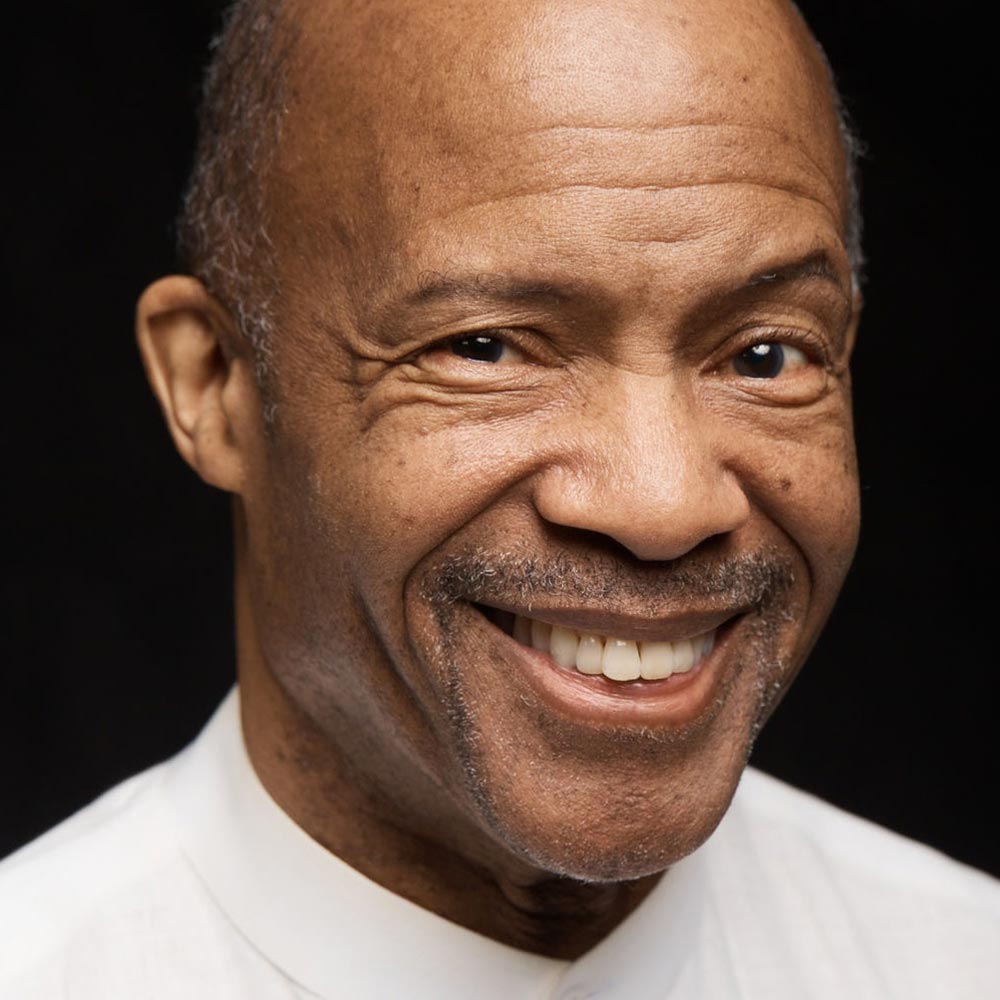
Gerry Bryant has been described by many as a renaissance man. Multi-talented Bryant graduated cum laude from both Phillips Andover Academy and Harvard, and received two graduate degrees (J.D. & M.B.A.) from UCLA. His musical influences range from masters of the Romantic Period in classical music (in particular Chopin, Tchaikovsky and Rachmaninoff), to jazz legends Nat King Cole and Duke Ellington, to contemporary pianists Keith Jarrett and Ramsey Lewis. He describes his original music as “Third Stream,” a term coined in 1957 by composer Gunther Schuller to describe a musical genre that is a synthesis of classical music and jazz.
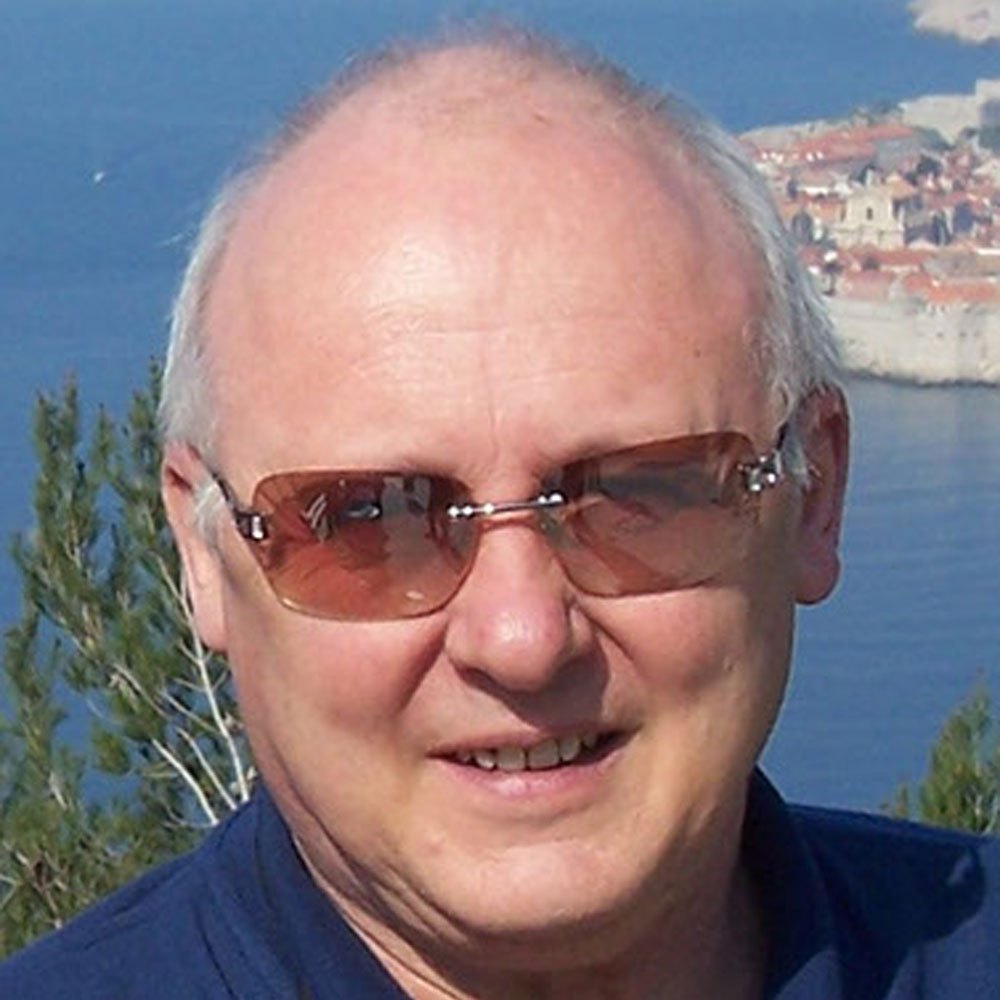
Brian Latchem is an English composer who was born in Bath and started to learn the piano at the age of 5. He comes from a musical family with both parents, grandparents, and great grandparents playing a variety of musical instruments. He trained to be a music teacher and started his career in Felixstowe, where he taught Music and Drama to pupils aged 11 to 14. In 1972 he moved to a new school to become responsible for music, teaching children from 5 to 11.
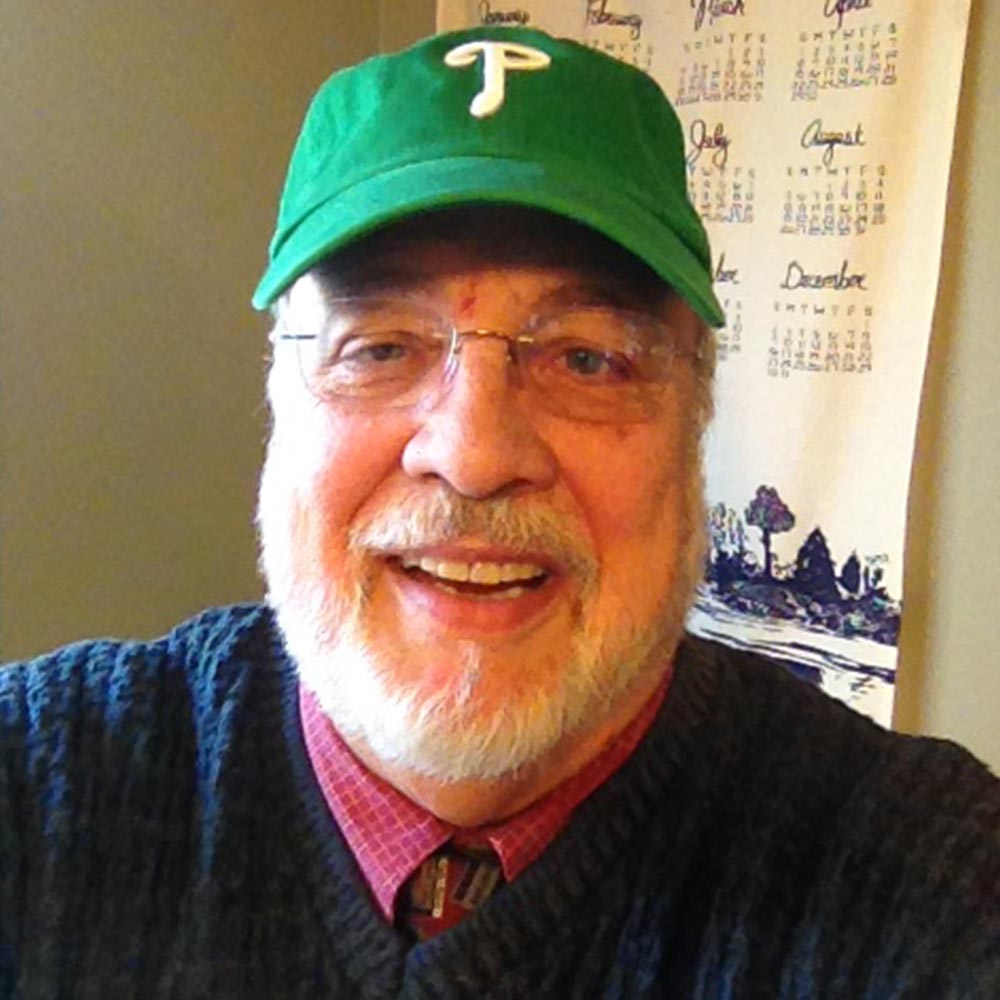
James Shrader is a composer, conductor, author, and retired academic administrator. He holds degrees from Bradley University (Music Education), The Cleveland Institute of Music (Opera Direction), and Texas Tech University (Fine Arts/Conducting). He was Director of Music and Fine Arts at The First Baptist Church of Greater Cleveland, Associate Director of Choral Activities at Texas Tech and Oklahoma State Universities, Chair of the Music Department and Director of Choral and Opera Studies at Northwestern Oklahoma State University, and Head of the Department of Music at Valdosta State University. He was Chorus Master for Tulsa Opera where he prepared nine productions.
